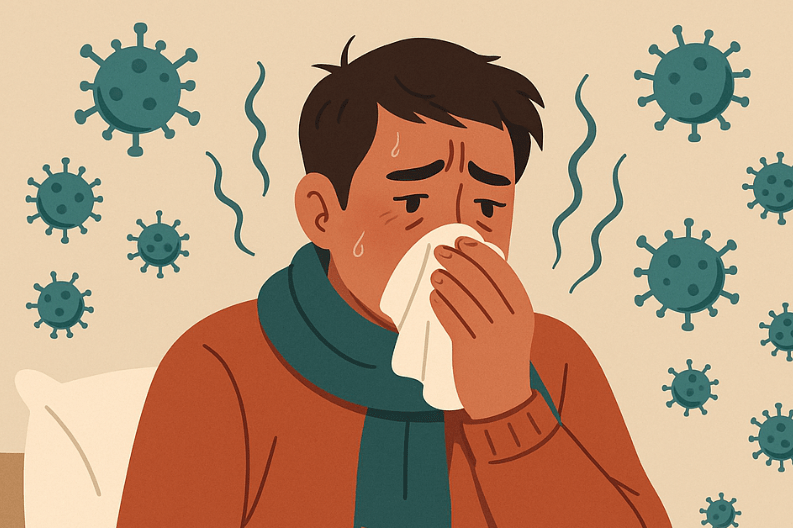H3N2 Flu outbreak in Delhi-NCR is spreading fast across Delhi, Gurugram, Noida, Faridabad, and Ghaziabad. Many families in these areas are falling sick, and doctors warn that this flu strain is more dangerous than a common cold. Unlike mild infections, H3N2 often causes longer illness and can lead to severe health problems if ignored.
The illness begins with flu-like symptoms that quickly worsen. Patients often report high fever, chills, sore throat, runny nose, constant cough, and body aches. Some also feel tired, develop headaches, or suffer from nausea, vomiting, and diarrhea, especially young children. Doctors advise that anyone with breathing problems or extreme weakness should seek medical help right away.
Health experts highlight that elderly people, children under five, and those with chronic diseases like asthma, diabetes, or heart conditions face greater risks. Therefore, families should watch for symptoms closely and not delay treatment.
The flu spreads mainly through droplets when sick people cough, sneeze, or talk. Others inhale these droplets or touch infected surfaces. Crowded and closed spaces, such as air-conditioned rooms, make the virus spread faster. Consequently, avoiding close contact with sick individuals is a key preventive step.
Doctors recommend taking rest for at least 5 to 7 days and drinking plenty of fluids, including water, warm soups, and herbal teas. Patients can take paracetamol to reduce fever and body aches but should only use antibiotics if prescribed by a doctor, as antibiotics do not treat viral infections. In severe cases, doctors may give antiviral medicines within the first 48 hours to speed recovery.
To prevent infection, people should wash their hands often, wear masks in public places, and avoid sharing personal items like towels and utensils. Families are also encouraged to keep their homes well-ventilated, clean surfaces regularly, and boost immunity through vitamin C-rich foods such as oranges and lemons. Adequate sleep and light exercise also strengthen the body’s defense system.
The Delhi Metro region’s struggle with this outbreak mirrors past experiences in Punjab cities like Mohali and Chandigarh, where similar flu waves caused stress on local hospitals. Medical professionals remind the public that the 2025-2026 flu vaccine will include protection against the H3N2 strain. Vaccination, especially for vulnerable groups, reduces the risk of serious complications.
The flu season also affects workplaces and schools, where absenteeism rises sharply. Companies and schools are urged to encourage sick individuals to stay home to prevent further spread. By acting responsibly, communities can limit the impact of this outbreak.
In conclusion, the H3N2 Flu outbreak in Delhi-NCR is a serious public health concern. Quick action, proper hygiene, and vaccination are the strongest defenses against this virus. With cooperation and awareness, people can protect themselves and help reduce the spread during this challenging flu season.



